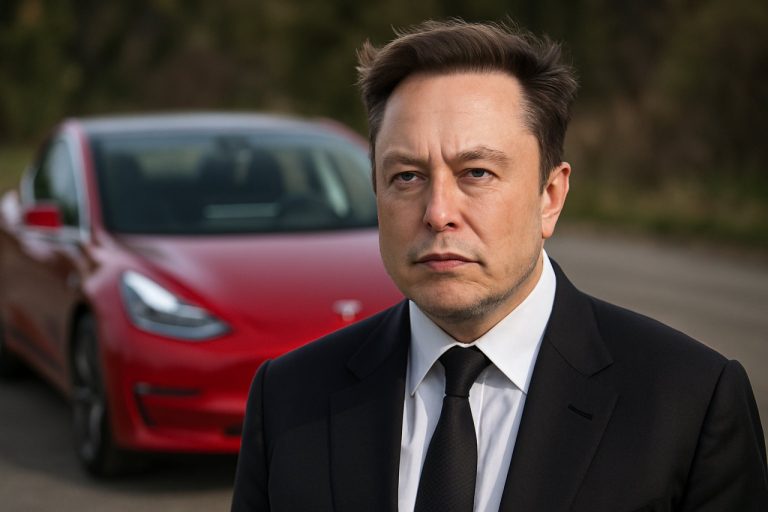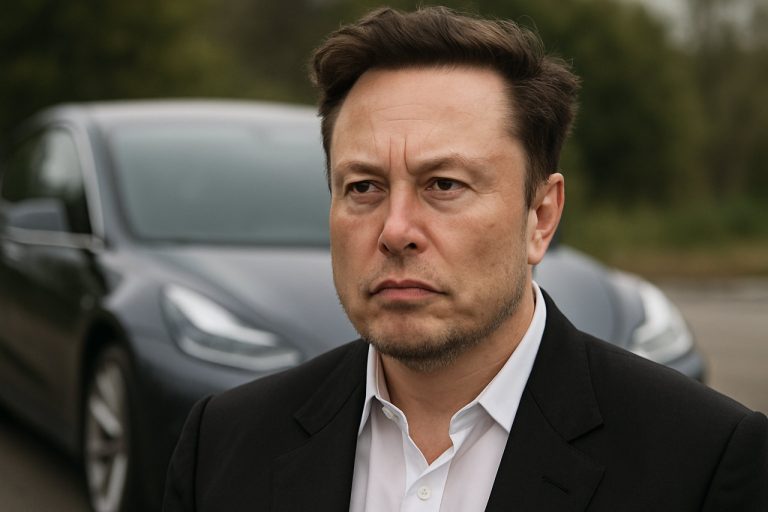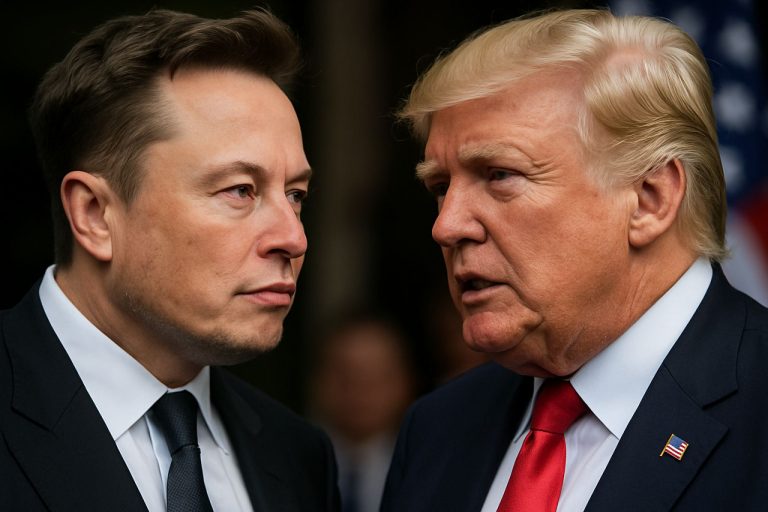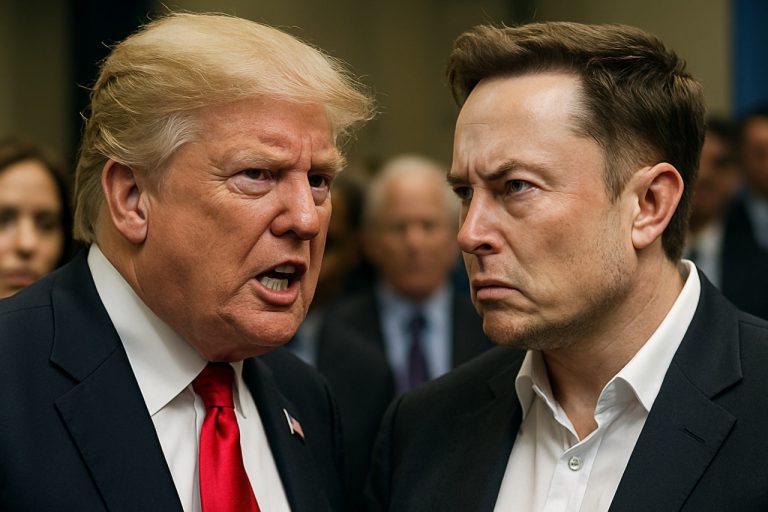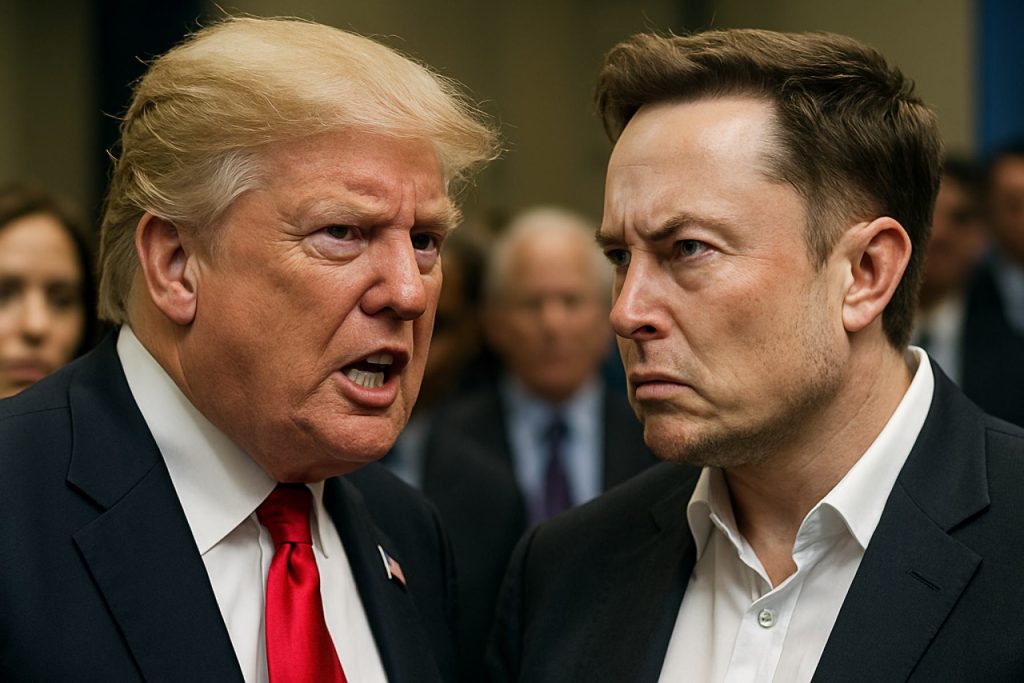
30+ Musk Tweets, Accusations of Hypocrisy, and an EV Battle: Inside Trump and Elon’s Stunning Public Split in 2025
Trump’s new budget bill, Musk’s furious social blitz, and the looming impact on America’s EVs and tech landscape—here’s what you need to know.
- $38B: Total government funding awarded to Musk’s companies since 2009
- 31: Musk’s tweet count in 24 hours attacking Trump’s bill
- $7,500: Federal EV tax credit set to end by 2025 under Big Beautiful Bill
- 71%: Tesla’s Q1 2025 profit drop year over year
The truce between two of America’s most polarizing powerhouses—President Donald Trump and Tesla CEO Elon Musk—has imploded in a public spectacle worthy of a Netflix docudrama. Over the past 24 hours, Musk has flooded his X account with dozens of takedown posts, igniting digital war over Trump’s latest budget move: the so-called “Big Beautiful Bill.” With rumors swirling about ketamine-fueled tweeting and late-night dealmaking, Washington insiders and Silicon Valley are on edge as the fallout threatens to reshape the next decade of tech, EVs, and government spending.
What’s Fueling the Fight Between Trump and Musk?
At the heart of the battle: Trump’s “Big Beautiful Bill,” a massive budget proposal that bulldozes key clean energy and tech initiatives—including the $7,500 federal electric vehicle (EV) tax credit—a lifeline for customers of automakers such as Tesla, Ford, and Rivian. But the bill doesn’t stop there. It slams EV owners with new annual fees ($250 for EVs, $100 for hybrids) and slashes all remaining EV incentives by the end of 2025, instead of the originally planned 2032 expiration.
Musk erupted, accusing the White House of sneaking the bill through Congress “in the dead of night” and calling out what he sees as fiscal recklessness. With a blistering 31 tweets in a single day, he hammered home that the bill’s “disgusting pork” would balloon the deficit and sabotage work by the Department of Government Efficiency (DOGE).
Why Is Musk So Angry About EV Credits—and Does He Really Need Them?
On paper, Musk has often claimed that cutting EV credits would hurt legacy rivals more than Tesla, thanks to Tesla’s brand and scale. Yet Tesla’s homepage still trumpets the tax credit, a key sales pitch in 2025 as the brand weathers a staggering 71% year-over-year profit plunge—a figure even Bloomberg has tracked closely. Musk’s latest fury appears driven not just by subsidies, but by what he calls “unfair, one-sided” treatment as oil and gas perks remain intact.
Is This Just About EVs—or Is There More at Stake?
While Trump brushes off Musk’s outcry as “just sour grapes” over lost EV mandates, the feud cuts deeper. Musk questions Trump’s fiscal credibility, resurfacing old deficit-cutting promises, and even claims Trump would have lost the 2024 election “without him.” Trump snapped back on Truth Social, blasting Musk for “wearing thin” at DOGE and threatening to ax SpaceX, Starlink, and other Musk ventures from lucrative federal contracts if the criticism continues.
How Will the ‘Big Beautiful Bill’ Change the Auto and Tech Landscape?
The bill’s consequences are far-reaching, even for companies beyond Musk’s reach. If passed as written, it yanks federal support for EVs five years early. Automakers who haven’t hit 200,000 EVs sold have until December 2026 to benefit, reverting to an Obama-era cutoff. The bill tacks on new registration fees, squeezes hybrid drivers, and—in a surprising twist—buries a 10-year ban on state-level AI legislation, which even some supporters missed in the fine print.
The reaction has been seismic. Republicans like Marjorie Taylor Greene demand the Senate strip out the AI moratorium, warning it could have “potentially dangerous” consequences as artificial intelligence evolves unpredictably.
What Happens Next: Will the Senate Stop the Bill?
The Big Beautiful Bill stormed through the House but faces fierce resistance in the Senate. Every change risks sending the volatile proposal back for another House vote, increasing the odds of more political drama and horse-trading. With automakers, tech giants, and energy lobbyists ramping up the pressure, the bill’s future remains uncertain.
As both Trump and Musk dig in, their messy breakup sets the stage for a clash that could reverberate through Tesla, the White House, and the entire American innovation economy.
How Can Americans—and Investors—Prepare for These Shocks?
- Follow major news outlets (NPR, CNN) for real-time updates as the bill moves through Congress.
- Monitor automaker strategy: expect potential EV price changes or altered rollout plans if federal credits vanish.
- Watch for sudden changes in tech regulation—especially for AI and state-level innovation efforts.
- Stay alert for impacts on federal contracts to companies like SpaceX, Starlink, and others tethered to government dollars.
Stay ahead of historic change—track Congress, watch for updates, and be ready to pivot as this Trump-Musk saga reshapes the future of tech and transportation!
Fast Action Checklist:
- Sign up for alerts with trusted news sources (Reuters, Washington Post).
- Check your eligibility for EV credits if car shopping in 2025.
- Read automaker notices about price, fees, or incentive changes.
- Follow key lawmakers and industry leaders for the latest statements on social media.
